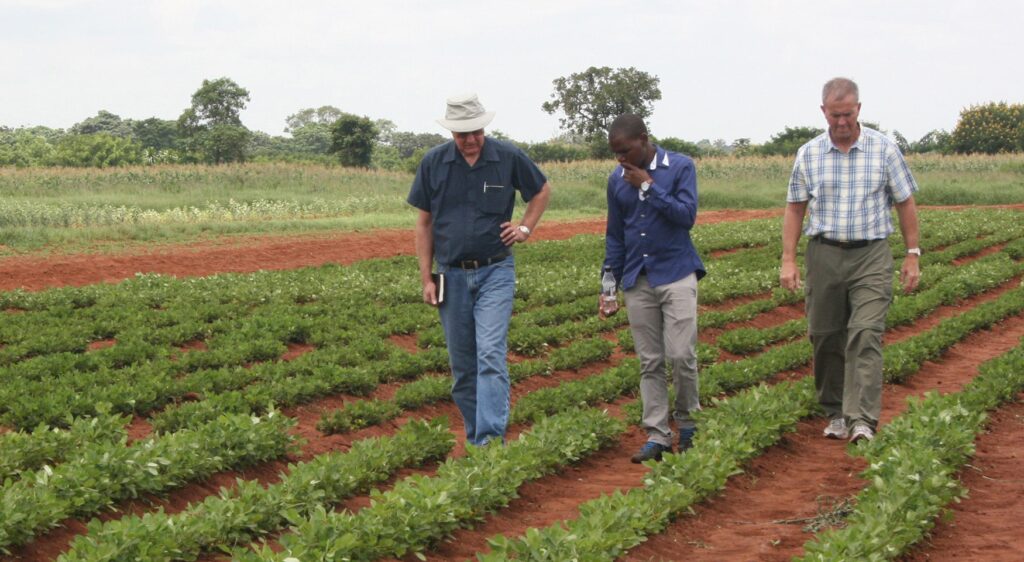SEE WHAT ELSE WE HAVE TO OFFER AT UGA.EDU
SEE WHAT ELSE WE HAVE TO OFFER AT UGA.EDU
UGA Peanut Innovation Lab Receives $15 Million Federal Grant to Fight World Hunger
In terms of being able to stand up to harsh conditions, peanuts are a tough nut to crack. That’s why so many farmers around the world grow them—the plant adapts to poor soils and produces a crop even in droughts. The benefits don’t stop there. Peanuts are also shelf-stable, nutritious, don’t require expensive fertilizer, and people like to eat them. Smallholder farmers can grow them on modest plots and cook the nuts into traditional dishes or sell the crop for money to send their kids to school.
To leverage the power of this unique crop, the U.S. government partners with the University of Georgia to solve problems faced by farmers. On April 12, 2023, the U.S. Agency for International Development (USAID) and UGA announced a five-year extension of their collaborative research and outreach work in peanut innovation.


Some of the lab’s research involves making stronger peanut plants—varieties that can survive disease or drought. Other studies focus on creating small machines or educational programs to help farmers and processors, designing products to bring the nutritional benefits of peanuts to consumers, or understanding the gender and age dynamics that lead farmers to make the decisions that they do.
Malawi, a small landlocked country in southern Africa, is diversifying its crop production from tobacco, which is in decline, to peanuts. Working with companies, local universities and the Malawian government, the Innovation Lab has helped to build the value chain for peanuts. In 2021, 10,000 farmers received improved seed and science-based training, resulting in higher yield and a better-quality harvest.
Plant diseases continue to pose major problems for farmers around the world, particularly in places where herbicides and pesticides aren’t affordable. Finding genes that make the plant naturally resistant to disease is the most cost-effective and environmentally sustainable solution for the farmer. Sometimes it’s the only tool to control a disease.
Researchers in UGA’s Wild Peanut Lab are creating varieties from relatives of the cultivated peanut. Those wild cousins have genetic strengths that the domesticated peanut lost, so by breeding the two and selecting the right offspring, plant breeders can get a variety that has all the traits consumers want, like flavor, with the disease resistance farmers need.
By working with the Peanut Innovation Lab, the Wild Peanut Lab has been able to partner with plant breeders from across Africa to test out varieties made from the wild species.
“The Peanut Innovation Lab has created a solid network of breeders and basic researchers throughout East, West and Southern African countries. With this network, we are able to disseminate information and materials to be tested in these different countries in a systematic way,” said Soraya Leal-Bertioli, who leads the Wild Peanut Lab with her husband, David Bertioli. “We feel that the Wild Peanut Lab’s mission of expanding peanut genetic diversity for food security in Africa is now an attainable goal.”